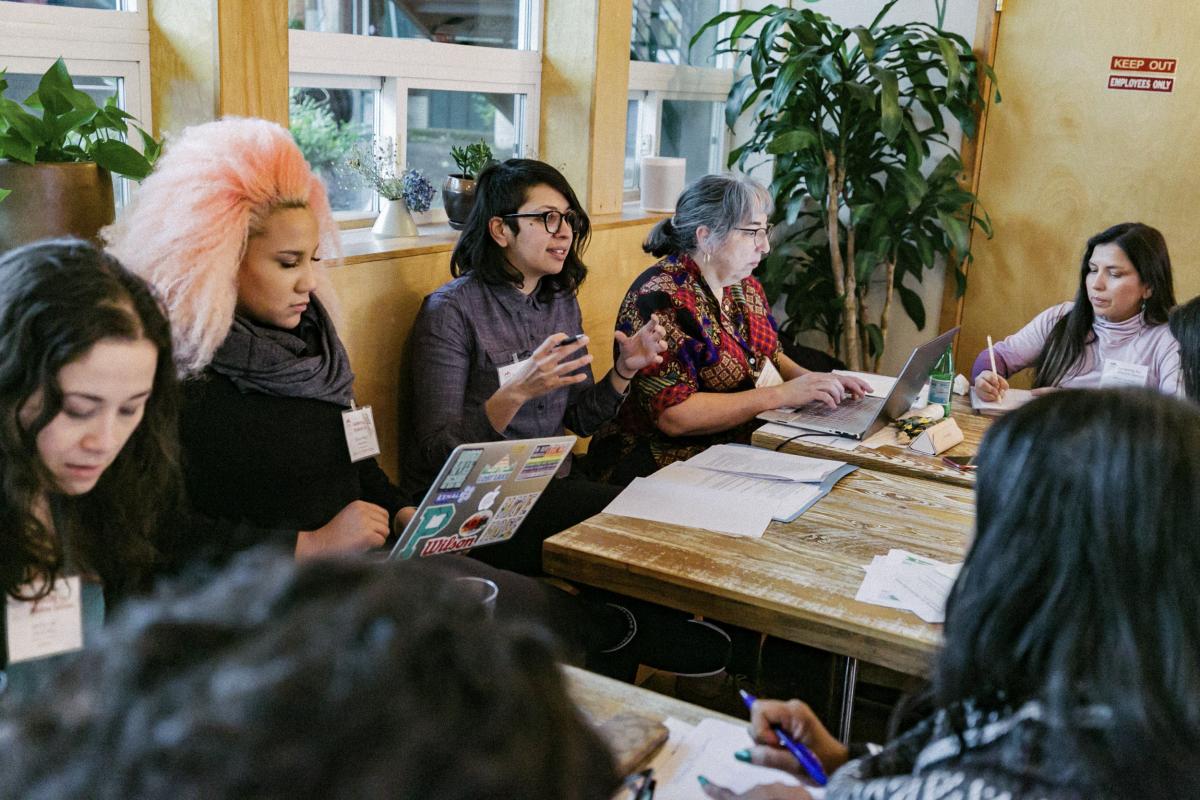Community-Based Organizations Gather to Strategize for Student Success
Community leaders exchange ideas and strategies to fulfill the vision of the Student Success Act.

01/24/20 ∞ MIN READ
With the Student Success Act (SSA), Oregon invested in a vision for educational equity where decision-makers approach community as a true partner in reducing disparities among children. But when community engagement is a mandate, what steps can we take to help decision-makers and community collaborate authentically and innovatively?
Last month, leaders and advocates from community-based organizations across Oregon gathered in Northeast Portland to strategize around reinforcing the SSA’s vision for community engagement. The daylong event was hosted by Meyer Memorial Trust, which launched a set of grants to bolster community-based organizations as they shape the implementation of the SSA.
The gathering explored the varied opportunities for community-based organizations to engage across the continuum of SSA initiatives and funds. Key goals quickly emerged: “Build trust” with decision-makers, said one attendee. “Translate policy into on-the-ground action,” and “develop a unified, big-picture strategy,” said others.
Given that community-based organizations are simultaneously devoting energy to pressing issues like the 2020 census, immigrant rights, climate change, and expanded access to driver’s licenses, the gathering’s participants emphasized that exchanging ideas and coordinating work would amplify their impact on the SSA’s implementation.
Highlighting successful collaborations between school district leaders and community-based organizations, for instance, can offer a model to communities where such relationships are just beginning to develop. Partnerships will be essential to delivering on the SSA’s promise to priority students, as community-based organizations can help school districts engage underserved families or even join forces to provide direct services like Head Start or summer school to children.
Another major point of discussion—and frequently overlooked opportunity for engagement—is administrative rulemaking. As the Oregon Department of Education drafts the rules that will govern the Student Success Act’s implementation, community-based organizations are informing how this historic policy will be put into practice statewide.
Traveling as little as a few blocks or over 300 miles to attend, the gathering included voices from Latino Community Association, REAP, Latino Network, APANO, Euvalcree, Adelante Mujeres, Self Enhancement, Inc., and Salem Keizer Coalition for Equality. Policy briefings and strategy sessions were facilitated throughout the day by Janet Soto Rodriguez, Deputy Director at FBO/Chalkboard Project; Amanda Manjarrez, Director of Public Policy & Government Affairs at FBO/Chalkboard Project; and Parasa Chanramy, Policy & Implementation Director at Stand for Children.
“Community-based organizations are actively designing strategies to fulfill the Student Success Act’s vision,” said Soto Rodriguez. “Bringing these organizations together was an integral step toward reimagining how Oregon’s children learn and grow.”
The first episode explores big questions: What was the intention behind Senate Bill 13? What can it look like to teach Indigenous Studies as a white teacher?
We're thrilled to welcome Louis Wheatley to our team as FBO/Chalkboard Project's Strategic Communications Director.
Amanda brings creative leadership and deep commitment to social justice to her work as Director of Public Policy and Government Affairs at FBO/Chalkboard Project.
Looking ahead to 2021, FBO/Chalkboard Project is committed to rekindling this momentum with a policy agenda that centers children, families, and communities.
We’re witnessing the value of Oregon's teachers and early learning providers, doctors and nurses, public servants, and so many more.
A joint letter calls on state leaders to "act with children our north star."
Sign up for our newsletter to get the latest news, resources, and more from Foundations for a Better Oregon.